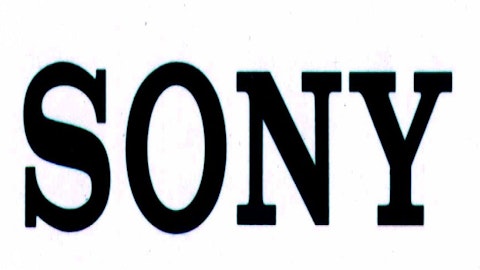Shares of GameStop Corp. (NYSE:GME) have jumped over 13% in the last five days. Excitement over the launch of the next generation of video game consoles, combined with relief that they would not block used games, may have prompted the rally.
But ultimately, GameStop appears to be facing a bleak future. Like other media formats before it, video games are going digital. And with that in mind, it’s hard to see how GameStop can stay relevant.
The Xbox One’s restrictions
Microsoft Corporation (NASDAQ:MSFT) has been heavily criticized for some of the decisions it made in regards to its newest console, the Xbox One. Specifically, owners of Microsoft’s next console must connect their machine to the Internet at least once every 24 hours, and cannot easily lend or trade games.
This is because, for all intents and purposes, Xbox One discs are irrelevant. For most consoles, the game itself was the disc, and the disc was the game. But with the Xbox One, the game is more or less a digital license stored on Microsoft’s servers.
Microsoft has promised to create a system that would allow authorized retailers (GameStop) to sell used games. However, this system would be entirely optional. Microsoft has vowed to use it for its own games (like Halo), but third-party developers can do as they wish.
Electronic Arts Inc. (NASDAQ:EA), one of the biggest third-party publishers out there, told Eurogamer that it would “probably” allow used games. Probably — but not definitely.
At any rate, while the Xbox One might not lock out used games entirely, it certainly doesn’t appear to be a console that’s friendly to them.
Sony Corporation (ADR) (NYSE:SNE)’s plan could be even worse for GameStop
Sony Corporation (ADR) (NYSE:SNE) has taken advantage of the backlash leveled at Microsoft with an online video poking fun at the Xbox One’s restrictions. But although Sony has kept the hope of disc-based games alive for now, its plans for the future could be far worse.
With Sony’s purchase of Gaikai, the company has committed itself to streaming games. Starting in 2014, users will be able to stream old PlayStation games to their PlayStation 4. As CNet’s Dan Ackerman notes, in time, as the technology improves and bandwidth speeds increase, the company could expand this service to modern games.
That would be great for Sony, as it could bundle its PlayStation service into its other devices like its Bravia TVs and Xperia tablets.
But it’s not great for GameStop Corp. (NYSE:GME). Games streamed directly from Sony itself eliminates the need for physical retailers entirely.
And as for non-streaming PlayStation 4 games, like the Xbox One, the matter is a bit more complicated than it appears. Games that Sony publishes itself (such as LittleBigPlanet) will be free of restrictions, but third-party publishers can place restrictions on their games.
The rise of other forms of gaming
Moreover, the idea of the video game console representing the sum total of available games is dead. Today, gamers are free to get their games on many non-console mediums — smartphones, tablets, and Internet browsers, for example. These mediums have been all-digital since inception.
New console concepts like the Ouya, the SHIELD, and the Steam box are wholly digital. And, as more and more consumers embrace them in place of traditional consoles, the market for physical games declines.
Apple Inc. (NASDAQ:AAPL) could deal a blow to GameStop Corp. (NYSE:GME) if it decides to release its long-rumored TV anytime soon. With Apple’s move to support third party controllers, any Apple TV that appears would likely be a force in the video game industry — and it probably wouldn’t rely on disc-based games.
GameStop’s decline
GameStop Corp. (NYSE:GME)’s management has pledged to return 100% of free cash flow to its shareholders. The company has a solid 3% dividend yield, and for the next few years should continue to post solid earnings.
But the video game industry is clearly in the midst of a transition to wholly digital. It seems to be a question of when — not if — physical disc-based games will disappear entirely.
When that happens, it’s hard to see a place for GameStop’s business.
The article GameStop is Living on Borrowed Time originally appeared on Fool.com and is written by Salvatore “Sam” Mattera.
Salvatore Mattera is long GameStop puts dated January 2015. The Motley Fool owns shares of GameStop and Microsoft. Salvatore “Sam” is a member of The Motley Fool Blog Network — entries represent the personal opinion of the blogger and are not formally edited.
Copyright © 1995 – 2013 The Motley Fool, LLC. All rights reserved. The Motley Fool has a disclosure policy.





